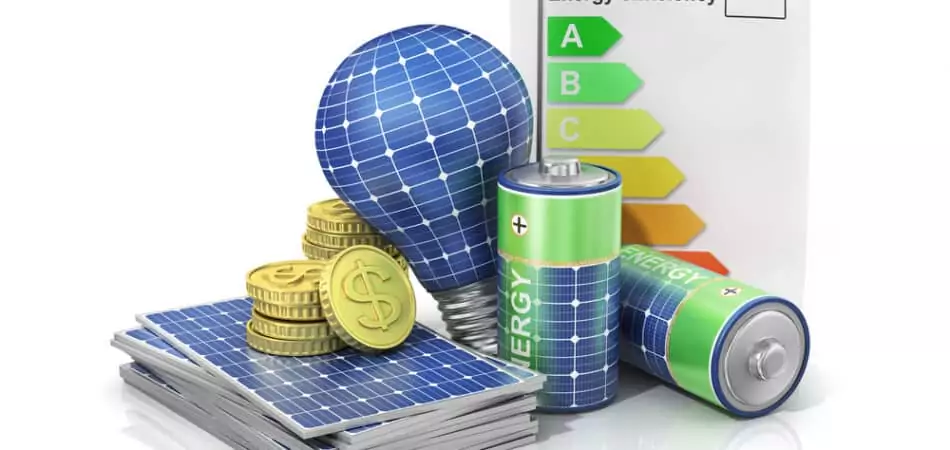
Disclaimer: This page provides an overview of the various tax credits, incentives, and benefits available to homeowners who install solar energy systems.
It does not constitute professional tax advice, legal guidance, or other professional financial consultation, and details may change based on additional legislation or guidance from governmental authorities. Please consult with a certified tax professional, legal expert, or financial advisor for personalized advice.
The information provided in this guide should not be used as the sole source of information when making purchasing decisions, investment decisions, tax decisions, or when executing other binding agreements related to solar energy solutions.
A tax credit is like getting a discount on your taxes. If you qualify for a $1,000 federal tax credit, it means you pay $1,000 less in taxes. Think of it like a coupon that takes $1,000 off your tax bill!
This particular credit, often referred to as the Investment Tax Credit or ITC, is designed to help homeowners like you who are installing solar systems. It’s different from the ITC offered to businesses, so it’s specifically for individuals looking to switch to solar energy in their homes.
Thinking about installing solar panels? The federal government offers a solar tax credit to help with the costs. The federal solar tax credit lets you reduce your federal taxes by a percentage of what you spent on eligible expenses for your solar panel system. It’s like getting some of your money back!
How much can you get?
| Year of Installation* | Tax Credit |
| Between 2022 and 2032 | 30% |
| 2033 | 26% |
| 2034 | 22% |
| 2035 | the credit expires unless Congress renews it |
Any limits? Nope! There’s no maximum amount you can claim. This tax credit is a great way to save on your solar panel investment but remember, it won’t last forever, so plan ahead!
Solar rebates offer an amount of money (usually set in advance) if you purchase a solar system. Rebates are more common at the state, local or installer levels.
Local Utility Company Solar Rebates. Rebate to reduce solar’s up-front cost or after the system’s installation (Varies by utility.)
Solar Renewable Energy Certificates (SRECs) are like rewards you can earn based on how much energy your solar panels create. In some places, local utility companies must buy a certain amount of these SRECs from people like you, to help increase the use of renewable energy.
Depending on where you live, this means you might be able to sell your SRECs to your power company and get cash in return. It’s a way to benefit from not only saving on your energy bill but also contributing to cleaner energy in your community.
Net metering is a common program available in many states that allows you to save money on your electricity bills if you have solar panels connected to the power grid.
Here’s how it works: If your solar panels produce more energy than you need, that extra energy goes back into the power grid. In return, you get credits that lower your electricity bills. It’s like selling the extra energy you don’t need, and it’s available through your local utility company. Make sure to check with them to understand the specific details in your area.
According to the Comptroller’s Solar and Wind-Powered Energy Device Exemption Guidelines, there is a property tax exemption on the added home value from the installed solar panels. The application for this exemption is Form 50-123 (Exemption Application for Solar or Wind-Powered Energy Devices)
You can earn money for any extra energy your system creates. Each month, you can receive credits on your electricity bill that could offset up to 100% of your energy charges. In other states, this process is often called “net metering.”
If you live in Austin and take a solar education course through Austin Energy, you might be able to get a $2,500 rebate when you install solar panels.
If you get your electricity from Garland Power & Light and install solar panels, they’ll give you credits on your bill for the extra energy your solar system makes.
If you’re an Oncor customer and install solar panels and battery storage, you could qualify for different rebates and money-saving incentives.
There is a property tax exemption on the added home value from the installed solar panels.
Solar panels and other solar equipment are exempt from sales and use tax in California
There is a property tax exemption on the added home value from the installed solar panels.
Solar panels and other solar equipment are exempt from sales and use tax in Arizona.
Residents who install solar panels may qualify for a variety of rebates from this utility company.
Arizona offers a statewide tax credit worth 25 percent of the cost of your solar panel installation, which is worth up to $1,000.
There is a property tax exemption on the added home value from the installed solar panels.
Solar panels and other solar equipment are exempt from sales tax in Florida
From deciding between different solar panel types, evaluating installation costs, understanding tax incentives, and calculating potential savings, solar panel installation is a significant but worthy investment.
At schedule a free consultation with us today.
We’ll guide you through every step, ensuring you get the maximum benefits from your solar installation. Let’s harness the power of the sun together.
